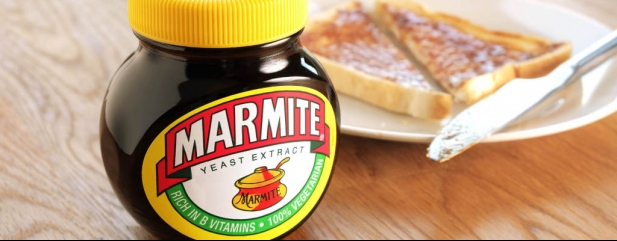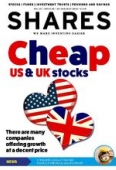Archived article
Please note that tax, investment, pension and ISA rules can change and the information and any views contained in this article may now be inaccurate.
Unilever’s food arm could be sold amid shift in strategy

Unilever (ULVR) has had three bids for GlaxoSmithKline’s (GSK) majority-controlled consumer healthcare unit knocked back, the latest offer pitched a bumper £50 billion.
Investors are concerned the Dove soap-to-Marmite maker may stretch its balance sheet by overpaying for the Glaxo’s consumer goods business, a joint venture with Pfizer that includes the Sensodyne, Panadol and Nicorette brands.
An overlooked possibility is that Unilever could sell its cash-generative foods and refreshment business to raise cash to fund the deal in a move which might upset longstanding shareholders.
The Anglo-Dutch giant said it plans to ‘materially’ expand its presence in higher growth health, beauty and hygiene products, categories offering ‘significant opportunities to drive growth through investment and innovation, and by leveraging Unilever’s strong presence in emerging markets’.
Conspicuous by its absence was any mention of foods and refreshment, where brands span Magnum, Knorr and Hellmann’s, hinting Unilever could be willing to sell parts or all of the division to help fund the purchase of Glaxo’s consumer goods arm or other acquisitions in the health, beauty and hygiene markets.
Food asset sales could draw the ire of certain shareholders at a moment when confidence in Unilever and CEO Alan Jope is low. It is worth noting that food and refreshment grew 3% organically in the third quarter, ahead of the 2.6% growth generated by the beauty and personal care arm, and includes some of Unilever’s most attractive categories such as ice cream and cooking ingredients.
FAR FROM A RADICAL UPGRADE
‘GSK Consumer Healthcare would be a strong strategic fit,’ insists Unilever, arguing the acquisition ‘would create scale and a growth platform for the combined portfolio in the US, China, and India, with further opportunities in other emerging markets.’
Berenberg believes an offer of ‘at least £55 billion would be required to secure the asset’. And assuming a £55 billion takeout price with 35% equity funding, the broker estimates a punchy valuation of 21.8 times EBITDA (earnings before interest, tax, depreciation and amortisation) which would increase Unilever’s net debt/EBITDA ratio to 4.3 times. Companies traditionally like to keep this ratio below 3 times.
Berenberg cautions Unilever may need to pay an even higher multiple to secure a deal, and that’s before any competing bids, potentially from Procter & Gamble or private equity, and it doubts a transaction would provide the organic growth lift needed to drive a re-rating of Unilever’s shares.
‘For 12 of the last 20 quarters, Consumer Healthcare’s organic growth has been below that of Unilever’s and has averaged just over 1% for the period, compared to 3% for Unilever,’ notes Berenberg.
‘GSK believes the unit can grow at 4%-to-6% over the mid-term (compared to 3%-to-5% for Unilever) – far from a radical upgrade.’
Important information:
These articles are provided by Shares magazine which is published by AJ Bell Media, a part of AJ Bell. Shares is not written by AJ Bell.
Shares is provided for your general information and use and is not a personal recommendation to invest. It is not intended to be relied upon by you in making or not making any investment decisions. The investments referred to in these articles will not be suitable for all investors. If in doubt please seek appropriate independent financial advice.
Investors acting on the information in these articles do so at their own risk and AJ Bell Media and its staff do not accept liability for losses suffered by investors as a result of their investment decisions.
Issue contents
Danni Hewson
Editor's View
Feature
Great Ideas
News
- THG’s shares take another hit on growth and margin setback
- Why China has bucked a global trend by cutting rates
- Oil hitting $100 could take the FTSE 100 to new record highs
- The trusts trading well below their 10-year average valuation
- Unilever’s food arm could be sold amid shift in strategy
- Wage inflation could hurt many shares
- Billions wiped off the value of construction stocks
 magazine
magazine








